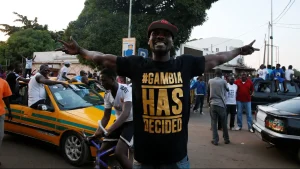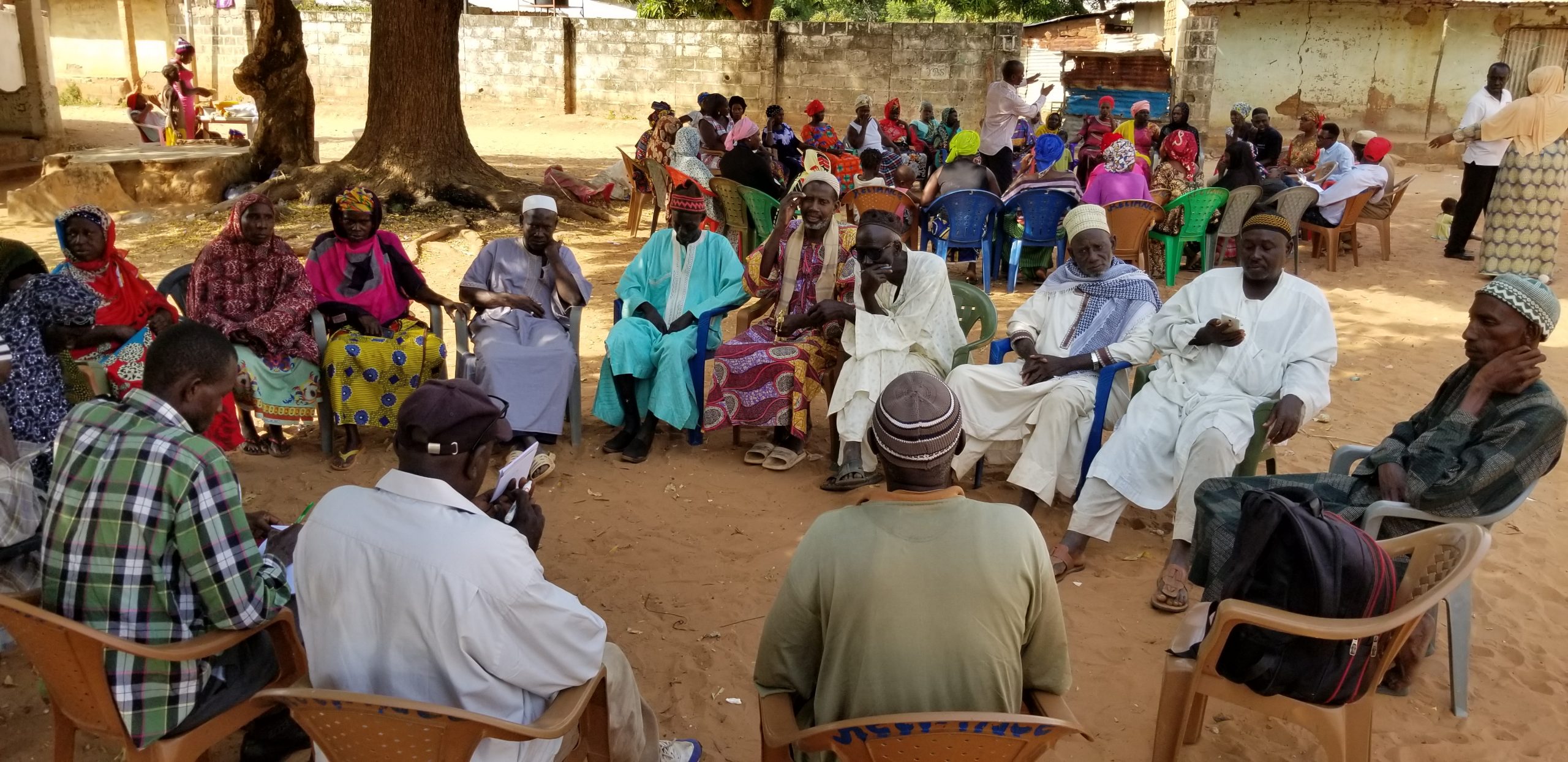Gambiaj.com – (BANJUL, The Gambia) – Recently, I published an article titled “The Gambia at the Crossroads Again”—a sober call for reflection, restraint, and responsible political conduct as our nation approaches the 2026 elections. I did so not out of partisanship, but out of deep concern for the path our country might take if current trends continue unchecked.
Since that publication, the political temperature has risen markedly. The tone of public discourse has hardened. Social media is becoming increasingly incendiary. Tribal insinuations are re-emerging. Political actors appear more focused on mobilizing loyalists than safeguarding national peace.
These signs are worrying. That is why I write again—not to dramatize, but to plead.
We Have Been Here Before
The December 2016 elections remain one of the most defining moments in Gambian history. A sitting president was voted out and initially accepted the results, only to reverse course a week later, plunging the country into a dangerous constitutional crisis. The next 43 days were filled with unprecedented uncertainty:
A State of Emergency was declared by the National Assembly.
Thousands of citizens fled across borders.
The economy ground to a halt. Air traffic was suspended. Schools and offices closed.
The international community intervened, and ECOMIG forces mobilized.
Citizens held their breath in fear of what might come next.
Those of us who remained in The Gambia during that impasse remember exactly how it felt. It was not abstract. It was not merely political. It was personal—an emotional storm that swept through every household.
I remember the eerie silences in neighborhoods, fear shared in whispers, the desperate prayers in mosques and churches, and waking each day unsure of what it might bring.
One moment remains etched in my memory: I found my grandson sitting silently with my prayer beads. When I asked what he was doing, he replied, “Praying for the country to have peace.” That moment moved me deeply. I went into my room and wept.
Our late mother insisted that we remain in the country and pray. My wife and I honored that decision. It reminded us that political recklessness has real consequences—and that national peace can never be taken for granted.
What We Need Now

We need a de-escalation of political rhetoric. All political leaders—whether in power or in opposition—must rise above partisan loyalty and act in the national interest. Elections should never come at the cost of social cohesion.
We also need our religious and traditional leaders to once again be voices of calm and moral clarity. During the 2016 impasse, figures like Bishop Hannah Caroline Faal-Heim spoke truth to power. In a closed-door meeting with the then-president, she said:
“This whole problem is only caused by one man, and that is you.” — Bishop Faal-Heim, January 2017
Her courage remains a shining example of leadership grounded in truth.
A Message to Gambian Youth
To our young people: do not allow yourselves to be pawns in political games. Do not be radicalized by parties that will forget you once the votes are counted. Your dignity, your safety, and your future matter more than any party slogan.
In 2016, the youth-led movement “Gambia Has Decided” showed us how to stand firm in peace. They protested responsibly, without violence or destruction—setting a high bar for civic engagement.
Use your voice—but use it wisely. Be engaged, question authority, and vote with conviction—but always reject violence and tribalism.
It seems some of those inciting chaos today were too young—or too removed—to truly understand the pain of the 2016 crisis. Let them learn from those who lived through it.
Tribe Must Never Trump Nation
We are proud of our ethnic diversity—Mandinka, Fula, Jola, Wolof, Serahule, Serer, Aku—but our ultimate loyalty must be to the Republic of The Gambia. No tribe can build or save this nation alone. No region owns the future. We rise—or fall—together.
The Role of Civil Society, Development Partners, and the Media
Civil society organizations and our development partners have been crucial in promoting peace, dialogue, and democratic norms. Their work in voter education, election monitoring, and civic sensitization remains vital.
The media, too, has a pivotal role. Journalists must report facts truthfully and avoid sensationalism that could inflame tensions. A well-informed public is the best defense against disinformation and hate speech. Let the media be guardians of truth and platforms for reasoned voices.
The Role of Security Institutions
The preservation of peace depends not only on politicians but also on the consistent, professional service of our security forces. The State Intelligence Service (SIS), the Gambia Police Force, and the Gambia Armed Forces (GAF) all play essential roles—especially during political transitions.
In the 2016–2017 crisis, many in our security services acted with calm and professionalism. Their restraint helped prevent chaos. They were instrumental in securing a peaceful resolution.
More recently, SIS Director General Ousman Sowe reminded us that “no country is immune to terrorism financing.” His words point to broader threats that go beyond politics—regional, transnational, and complex. The SIS’s work in early warning and interagency coordination is more vital than ever.
As we approach another election, all security institutions must act with impartiality, professionalism, and respect for the rule of law. Their duty is constitutional, not political.
Likewise, civilians must respect the law, maintain order, and engage peacefully. National stability is strongest when institutions and citizens support one another in mutual respect.
Let us honor and support our men and women in uniform. They serve under difficult conditions—and their discipline is indispensable to our shared peace.
Leadership Is Tested in Tension
This is a moment that demands responsible political conduct. If politicians cannot manage their parties peacefully, how will they manage the country in crisis? If they use tribalism to win power, those same divisions will tear the nation apart when tensions rise.
Let us remember that in 2021, Gambians voted in a hotly contested election, and still, the outcome was respected. We proved that peaceful democratic transitions can happen here.
In Troubled Winds, Be the Anchor
As our elders wisely say:
“Don’t provoke a storm you can’t control; if it sweeps away others, it will sweep you away too.”
No election victory is worth tearing the country apart. No political ambition is worth more than our national peace.
We all have a role to play—politicians, civil servants, religious leaders, journalists, civil society, development partners, and citizens. The responsibility is collective.
As someone who has served under multiple administrations—through reform and repression—I speak from lived experience, not political calculation.
Let us remain measured. Let us stay calm. Let us avoid returning to a place we barely escaped before.
Final Plea
I plead with all Gambians: do not let our hard-won peace unravel. Stand firm for unity. Reject hatred, tribalism, and violence. Let us remember the prayers of our children, the courage of our mothers, and the lessons of our past.
Let us go forward—not in turmoil, but in wisdom.
Above all, let us recognize that The Gambia today needs builders, not warriors. Our people deserve leaders who will deliver on health, education, food security, and justice—not those who thrive on loud speeches and confrontation.
The era of proving one’s bravery through defiance is over. That bravery was already tested in 2016–2017—some were hunted, others went into hiding. But many chose a different kind of courage: they stood for peace, even at great risk.
That is the kind of courage we must now embrace—the quiet courage to build, to serve, and to heal.
Let it guide us through the troubled winds ahead.










